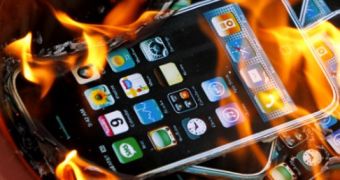“Foxconn […] wants to reduce its reliance on Apple.” This is the key takeaway from a concerning story ran by the New York Times this week, regarding Apple's slumping iPhone business.
The move could have serious implications for the Cupertino, California-based company that sells the much-coveted iPhone.
Amid slowing business at Apple and Nokia, Foxconn is adopting a new strategy to “shift away from making products that other companies design, and [move] toward developing products of its own,” says the paper.
The Chinese electronics maker has its eye set on flat-screen televisions, which it plans to design and manufacture.
Simon Hsing, a Foxconn spokesman, said, “The decline in the business of our partners, such as Apple and Nokia, does affect us.”
Mr. Hsing added, “We don’t want to just wait for orders. We are actively talking with many clients and asking if they can fully utilize what we make.”
However, that doesn’t mean Foxconn will become its own brand now. Far from it, according to a Foxconn executive.
“Hon Hai is the largest electronic manufacturing service company in the world,” said Kay Chiu, vice president of Foxconn’s consumer electronics division.
“We are the platform for all the brand-name customers, and to have our own brand does not suit the company policy.”
Luo Huai-jia, vice president at the Taiwan Electrical and Electronic Manufacturers’ Association, agrees that companies like Foxconn need to pursue original design.
“Taiwan companies have always relied on being a contract manufacturer and outsourcing manufacturer,” said Luo Huai-jia.
“Now we need to start looking at original design manufacturing and directly matching the needs of consumers.”
Foxconn assembles most of Apple’s products, from iPhones and iPads to MacBooks and iMacs.
With Apple already having trouble meeting customer demand, Foxconn could deal a huge blow to its business by no longer offering its full set of services in the future.

 14 DAY TRIAL //
14 DAY TRIAL //